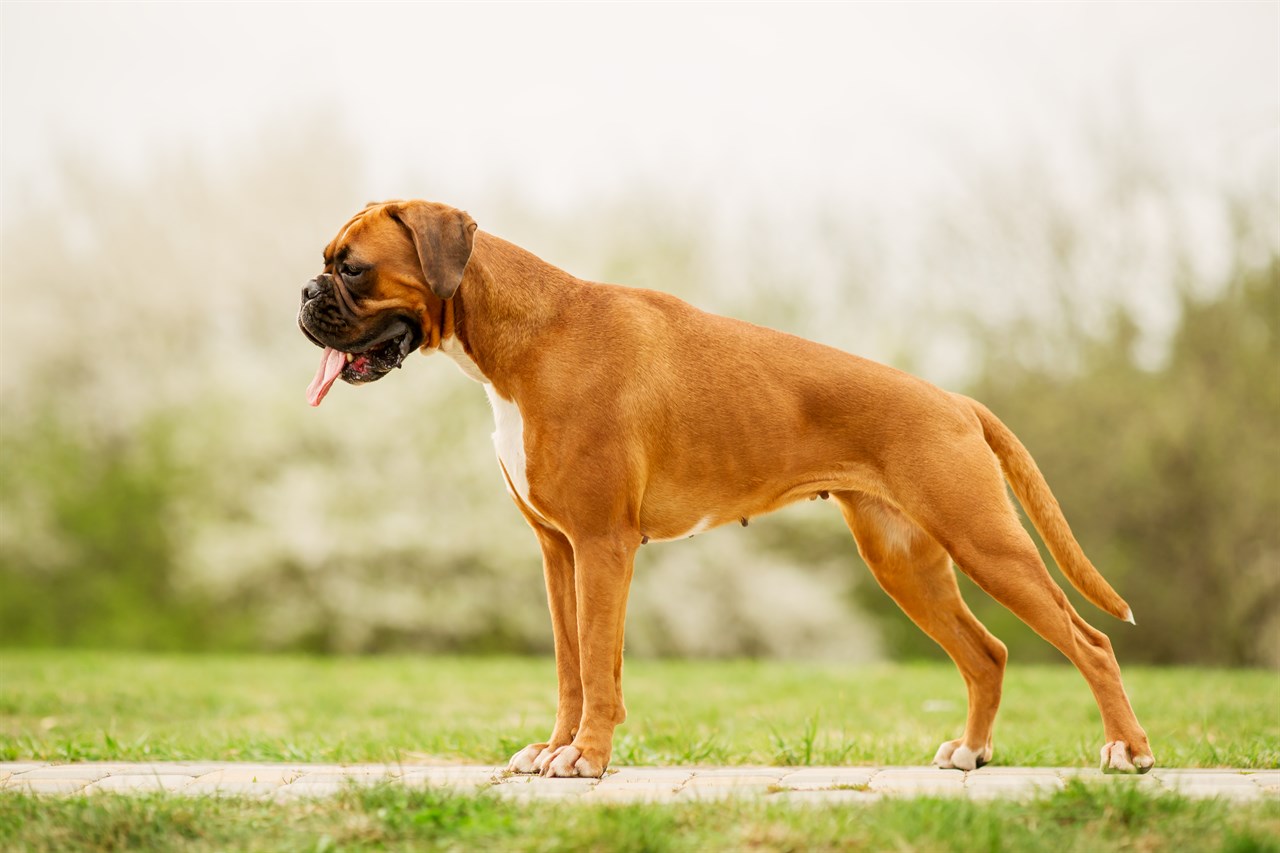Feeding Habits and Food Requirements of Boxer Dogs

Proper nutrition is essential for the health and well-being of Boxer dogs. Understanding their feeding habits and dietary requirements can help you provide them with the best nutrition for their specific needs. Let's explore the feeding habits and food requirements of Boxer dogs:
Feeding Habits
Boxers are known for their healthy appetites and enthusiastic approach to mealtime. Here are some common feeding habits of Boxer dogs:
- Eager Eaters: Boxers tend to be enthusiastic eaters and may gobble down their food quickly. This behaviour can sometimes lead to digestive issues or choking, so consider using slow-feed bowls or puzzle feeders to slow down their eating.
- Regular Meal Schedule: Establish a consistent meal schedule for your Boxer. Feeding them at the same times each day can help regulate their digestive system and prevent overeating.
- Monitor Treats: Boxers are prone to gaining weight if they receive too many treats or snacks. Be mindful of the number of treats you give and factor them into your dog's daily calorie intake.
- Fresh Water: Always provide fresh, clean water for your Boxer. They can become dehydrated quickly, especially if they are active or during hot weather.
Dietary Requirements
To provide the best nutrition for your Boxer, consider the following dietary requirements:
- High-Quality Dog Food: Choose a high-quality commercial dog food that meets the specific needs of your Boxer's life stage (puppy, adult, or senior). Look for a formula that lists a high-quality protein source as the primary ingredient.
- Protein: Boxers benefit from a diet rich in high-quality animal protein. Protein supports their active lifestyle and helps maintain lean muscle mass.
- Moderate Fat: While Boxers are active, they don't require excessively high levels of fat. A moderate-fat diet can help prevent weight gain.
- Whole Grains and Fibre: Carbohydrates from whole grains like rice or barley provide energy and fibre for digestion. Avoid foods with excessive fillers or low-quality grains.
- Fruits and Vegetables: Some fruits and vegetables can be included in your Boxer's diet as sources of vitamins, minerals, and antioxidants. Avoid foods that are toxic to dogs, such as grapes, raisins, and onions.
- Omega-3 Fatty Acids: Omega-3 fatty acids from sources like fish oil can support skin and coat health in Boxers, which can be prone to skin issues.
- Avoid Fillers: Avoid foods with excessive fillers like corn, soy, and artificial additives. These ingredients offer little nutritional value.
Portion Control
Boxers can be prone to weight gain, so it's essential to feed them appropriate portions based on their age, activity level, and individual metabolism. Your veterinarian can help you determine the right amount of food for your Boxer to maintain a healthy weight.
Special Considerations
Boxers can be prone to certain health issues, including allergies, heart problems, and gastrointestinal sensitivities. It's essential to discuss your Boxer's specific dietary needs with your veterinarian to address any special considerations.
In conclusion, providing your Boxer with a balanced and high-quality diet, proper portion control, and a consistent feeding schedule is essential for their health and well-being. Regular check-ups with your veterinarian can help ensure that your Boxer's dietary needs are met, and any specific health concerns are addressed through their nutrition.